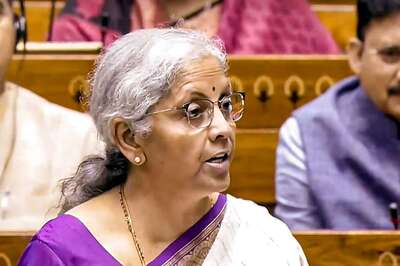
views
CHENNAI: Chartered Institute of Management Accountants (CIMA), the world’s largest professional body of management accountants, recently released a report titled ‘Building world-class businesses for the long term: challenges and opportunities.’ The report enumerates the problems that businesses face due to lack of long-term planning and its repercussions. Arati Porwal, Chief Representative of CIMA in India, spoke to City Express about the idea behind the report, and the facets of planning covered in it. CIMA funds and conducts numerous business related research papers. With the global financial crisis, major companies collapsed, and short-term thinking was blamed for most of their woes. This has led to an interest in alternative corporate models. While abandoning short-term thinking and changing to long-term planning seems the panacea for this, it is not as simple as that, says the report. Arati says, “One has to think of sustainability if you are thinking of building long-term businesses. This became relevant especially with what has been happening in the western world in the last two years. Businesses seem to have a very short shelf life.” This observation prompted the study, which will be discussed at the CIMA World Conference to be held later this year in Cape Town, South Africa. The theme of the conference is ‘Sustainable Businesses.’ Written by Gillian Lees, head of CIMA’s corporate governance unit and communications department, and Roger Malone, a freelance writer and editor specialising in business and economics, Arati says the challenges of building a large scale business is examined in the report. Companies involved with CIMA such as Infosys and Tata have given a “brilliant” response to the study, says Arati. “The research is based on what’s happening in the world, as well as information from other organisations and their experiences. Once the research is done, we bring it back to the companies to see how they can use their resources better,” she says. Looking for alternative business models, Asian and Indian companies are worth emulating. The reason for this, according to Arati, is that the business is started and built with the purpose of being a legacy to their families and their children. “Here, we see that every decision which is made will be based on how it will affect the future of the company, 10 or 15 years down the line. This is also why many Indian companies survived the financial crises. They are built to last,” she says. But how does a company survive scandals, perhaps the one like Satyam’s? Arati says, “As long as a company does not have a deep-rooted ethical problem, scandals will not affect them very much. If their track record is good, the public will learn to trust them. But if it is a problem at the heart of the company, they will need to revamp their entire structure.” Having a long-term plan is more than adding a few years to target deadlines. Arati says, “A management has to be prepared to meet its long term needs as well as ensure that its short term need support their future plans.”




















Comments
0 comment